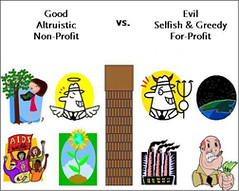Steve Sebelius, editor of CityLife, seems especially happy in his post on July 12, reporting that U.S. District Court Judge James Mahan made a ruling for summary judgment on behalf of the plaintiffs in Coyote Publishing et. al. v. Heller. He should be: CityLife has some new potential advertisers.
What is Coyote Publishing et. al. v. Heller? It is a lawsuit filed by Allen Lichtenstein, general counsel to the American Civil Liberties Union of Nevada on behalf of several newspapers, that sought to void two state statutes that prohibited brothel advertising in counties where prostitution is illegal.
Right. Although some people do not know it, while the majority of the state allows legal prostitution, the two largest populated areas, Clark County (including Las Vegas, North Las Vegas, Henderson, Boulder City, and Laughlin), and Washoe County (including Reno and Lake Tahoe), do not have any form of legalized prostitution.
I co-wrote, with our former employee Ellen Levine, a feature on this subject for a First Amendment magazine back in 1994, when the Clark County Commission attempted to hinder legal and licensed escort services from passing out handouts because they were “a pedestrian hazard.”
Some of the arguments were sound, like those of Jim McDonald, a vice squad detective for the Las Vegas Metropolitan Police Department, who said once non-prostitution escort services were licensed, they had a tendency to add services until it was often difficult to distinguish whether they crossed the line or not. Other arguments were not so sound, those made by the Clark County Commission at the time, claiming “handicapped people in wheelchairs might not be able to get by someone handing out fliers.”
To be honest, it was hard not to sympathize (a little) with police officers despite the fact that escort handouts were protected by the First Amendment. Why? Well, a lot has changed since then; but in 1994, a modest $1 million per year paid five officers to make approximately 20 arrests per night. At the time, there were only about 200 illegally working girls in Downtown Las Vegas (considered the lowest) and up to five times that amount on the Las Vegas Strip (where the girls worked casino bars), depending on what events were in town.
But for the department, they also had a daunting task because many tourists have heard that prostitution is legal in Nevada, but do not know it is illegal in Clark and Washoe counties. Risqué escort advertising only reinforced the confusion. In fact, Thalia Dondero, then a Clark County commissioner, told me that the confusion would be even worse if it wasn’t for the restrictions of brothel advertising. (Brothels in other areas of the state could not even buy a tombstone advertisement in the Yellow Pages.)
Of course, the new federal ruling changes all this, allowing brothels that are legal in neighboring counties to advertise their services in counties where prostitution is illegal. I can only imagine the confusion will increase tenfold.
Despite leaning toward being a First Amendment purest, I wonder what this ruling might mean for the rest of the nation, given there are many legal products restricted and/or barred from advertising, tobacco and alcohol included. I can’t help but wonder if Judge James Mahan’s logic means it might even be okay for Amsterdam businesses to advertise hash in the United States.
I appreciate this might sound strange coming from someone who assisted a few gaming properties in their case to loosen or remove casino advertising restrictions, but my reasoning was pretty clear then: legal casinos have a right to advertise anywhere gaming is legal. But this new ruling, which I have yet to form an opinion about, seems to suggest legal businesses have a right to advertise even where their products or services are illegal.
“But for our part, the motive wasn't financial. (We're not going to get a raise, or avoid a cut in pay, because of this lawsuit.),” says Sebelius. “The motive was philosophical: We honestly believe that telling a newspaper it cannot accept truthful advertising from a legal, licensed business is wrong. It's prior restraint, and it does violence to the First Amendment's guarantees.”
You know, I’ve always liked Sebelius. For the most part, he’s a straight shooter. But this time around, even I have to wonder when he suggests that Coyote Publishing et. al. v. Heller won’t be a boon for media outlets, billboard companies, and publications like CityLife.
“Speaking of money, some will argue that the corporate masters of CityLife pursued this litigation only to make money from brothel ads. Personally, we don't think there's a gold mine there, but certainly, making money is what corporations do,” he said.
No gold mine? In Storey County, money made from licensing brothels generates the county’s entire operational funds. In Lyon County, the licensing supports most if not all of the county’s hospital. In fact, Dennis Hof, owner of the Moonlight Bunny Ranch and Bunny Ranch Two in Lyon County, has already said he will be tripling his advertising budget to go big in Reno.
Hmmm … I’m starting to think, no matter what anybody thinks of prostitution, that this First Amendment “victory” will eventually backfire, thereby allowing government to find new ways to limit free speech. Nowadays, you never know.
What is Coyote Publishing et. al. v. Heller? It is a lawsuit filed by Allen Lichtenstein, general counsel to the American Civil Liberties Union of Nevada on behalf of several newspapers, that sought to void two state statutes that prohibited brothel advertising in counties where prostitution is illegal.
Right. Although some people do not know it, while the majority of the state allows legal prostitution, the two largest populated areas, Clark County (including Las Vegas, North Las Vegas, Henderson, Boulder City, and Laughlin), and Washoe County (including Reno and Lake Tahoe), do not have any form of legalized prostitution.
I co-wrote, with our former employee Ellen Levine, a feature on this subject for a First Amendment magazine back in 1994, when the Clark County Commission attempted to hinder legal and licensed escort services from passing out handouts because they were “a pedestrian hazard.”
Some of the arguments were sound, like those of Jim McDonald, a vice squad detective for the Las Vegas Metropolitan Police Department, who said once non-prostitution escort services were licensed, they had a tendency to add services until it was often difficult to distinguish whether they crossed the line or not. Other arguments were not so sound, those made by the Clark County Commission at the time, claiming “handicapped people in wheelchairs might not be able to get by someone handing out fliers.”
To be honest, it was hard not to sympathize (a little) with police officers despite the fact that escort handouts were protected by the First Amendment. Why? Well, a lot has changed since then; but in 1994, a modest $1 million per year paid five officers to make approximately 20 arrests per night. At the time, there were only about 200 illegally working girls in Downtown Las Vegas (considered the lowest) and up to five times that amount on the Las Vegas Strip (where the girls worked casino bars), depending on what events were in town.
But for the department, they also had a daunting task because many tourists have heard that prostitution is legal in Nevada, but do not know it is illegal in Clark and Washoe counties. Risqué escort advertising only reinforced the confusion. In fact, Thalia Dondero, then a Clark County commissioner, told me that the confusion would be even worse if it wasn’t for the restrictions of brothel advertising. (Brothels in other areas of the state could not even buy a tombstone advertisement in the Yellow Pages.)
Of course, the new federal ruling changes all this, allowing brothels that are legal in neighboring counties to advertise their services in counties where prostitution is illegal. I can only imagine the confusion will increase tenfold.
Despite leaning toward being a First Amendment purest, I wonder what this ruling might mean for the rest of the nation, given there are many legal products restricted and/or barred from advertising, tobacco and alcohol included. I can’t help but wonder if Judge James Mahan’s logic means it might even be okay for Amsterdam businesses to advertise hash in the United States.
I appreciate this might sound strange coming from someone who assisted a few gaming properties in their case to loosen or remove casino advertising restrictions, but my reasoning was pretty clear then: legal casinos have a right to advertise anywhere gaming is legal. But this new ruling, which I have yet to form an opinion about, seems to suggest legal businesses have a right to advertise even where their products or services are illegal.
“But for our part, the motive wasn't financial. (We're not going to get a raise, or avoid a cut in pay, because of this lawsuit.),” says Sebelius. “The motive was philosophical: We honestly believe that telling a newspaper it cannot accept truthful advertising from a legal, licensed business is wrong. It's prior restraint, and it does violence to the First Amendment's guarantees.”
You know, I’ve always liked Sebelius. For the most part, he’s a straight shooter. But this time around, even I have to wonder when he suggests that Coyote Publishing et. al. v. Heller won’t be a boon for media outlets, billboard companies, and publications like CityLife.
“Speaking of money, some will argue that the corporate masters of CityLife pursued this litigation only to make money from brothel ads. Personally, we don't think there's a gold mine there, but certainly, making money is what corporations do,” he said.
No gold mine? In Storey County, money made from licensing brothels generates the county’s entire operational funds. In Lyon County, the licensing supports most if not all of the county’s hospital. In fact, Dennis Hof, owner of the Moonlight Bunny Ranch and Bunny Ranch Two in Lyon County, has already said he will be tripling his advertising budget to go big in Reno.
Hmmm … I’m starting to think, no matter what anybody thinks of prostitution, that this First Amendment “victory” will eventually backfire, thereby allowing government to find new ways to limit free speech. Nowadays, you never know.





















